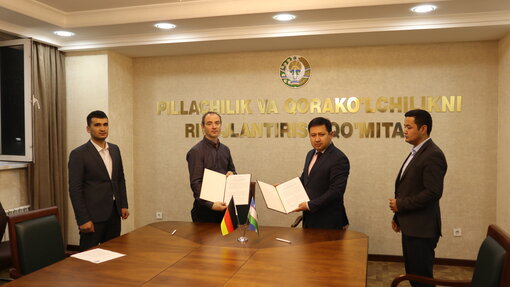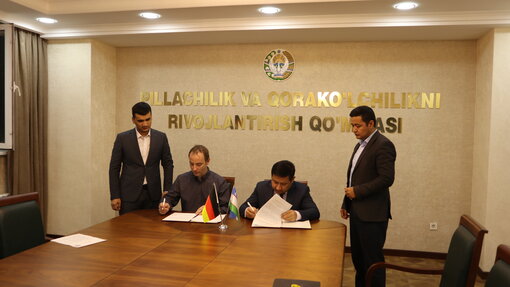The deserts of Central Asia are a clearly underestimated carbon sink. In a near-natural state, they can make a significant contribution to combating climate change. However, studies by the Michael Succow Foundation and the University of Greifswald show that only ¼ of the Central Asian cold deserts now provide these ecosystem services, and the trend is downward.
One driver of this degradation process is grazing, or more precisely overgrazing. The Committee for the Development of Wool and Silk Production is responsible for pasture planning and regulation in Uzbekistan. Together with the committee, the Michael Succow Foundation intends to establish sustainable grazing practices in the deserts and thus enable natural regeneration of desert vegetation.
The first measure planned is the joint development of a NAMA (Nationally Appropriate Mitigation Action), a funding mechanism established under the United Nations Framework Convention on Climate Change (UNFCCC). The signing of the cooperation agreement seals the joint intention to work together in this direction.
![[Translate to EN:] Banner Stiftung](/fileadmin/_processed_/b/c/csm_banner-stiftung_fee6c1c492.jpg)

